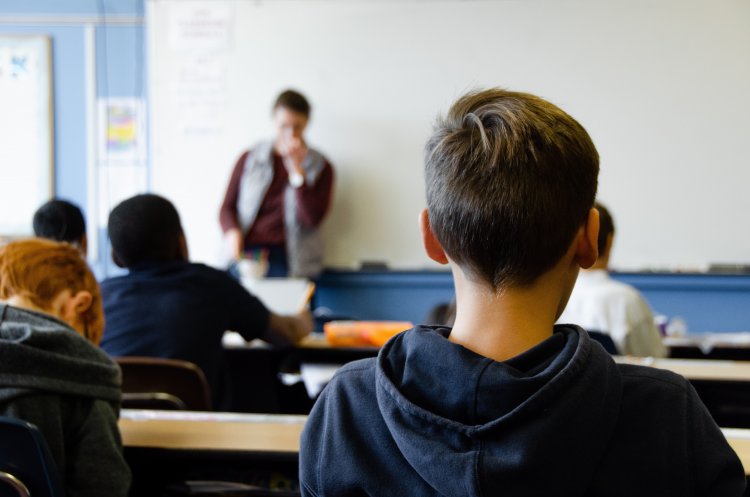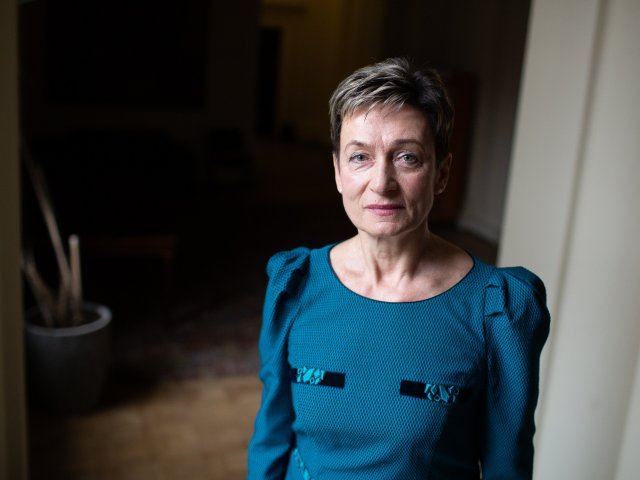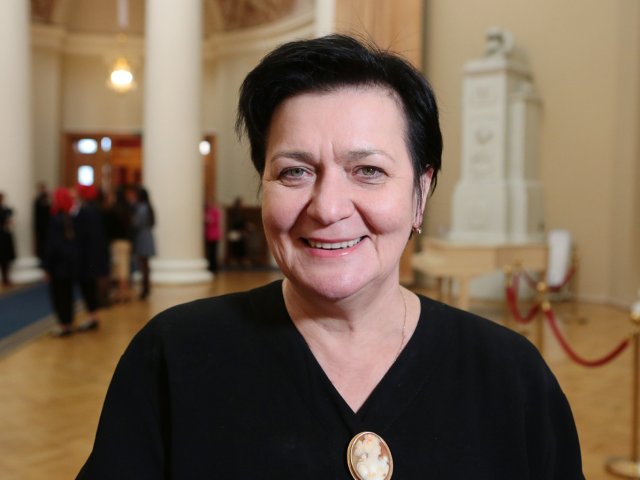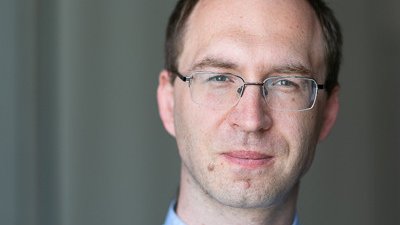Think, how often do you remember your school years and most importantly, what emotions they evoke. If you like to get nostalgic sometimes, you’ve had good teachers. Teachers’ Day is celebrated on October 5, but few people know the answer to the question “Why?” In fact, there is no secret about this date. On October 5, 1964, an international UNESCO conference was held in Paris, where the Recommendation concerning the Status of Teachers was signed. This paper explained the teaching profession, spoke about the importance of pedagogy and its role in society, as well as the need to create decent working conditions for teachers around the world.
In the USSR, on September 29, 1965, a decree on holidays was issued, according to which Teachers’ Day was scheduled for the first Sunday in October. In many former Soviet republics, it is still celebrated on the first Sunday. In 1994, the United Nations Educational, Scientific and Cultural Organization declared the holiday international, and Russia decided to celebrate it on the same day with the whole world. In 1995, Boris Yeltsin established the Teacher of the Year competition, which is still taking place. On Teachers’ Day, we will remember the outstanding teachers of the past and briefly talk about what approaches to children they managed to find.
Konstantin Dmitrievich Ushinsky (1824–1870)
The nobles of the 19th century spoke French. Their children were taught by foreign tutors. Remember the first teacher of Petrusha Grinev, a Frenchman, or the German Karl Ivanovich from Tolstoy’s “Childhood.” It is quite clear that they could not give fundamental knowledge, but from the first years, they taught children the language and the slikk to read and write. Foreign languages were also spoken in schools, including boarding ones. Konstantin Ushinsky was one of the first teachers who raised the problem of preserving national culture (the article “On the need to make Russian schools Russian”). He is also called the creator of Russian scientific pedagogy. Ushinsky proposed to give priority attention to the moral education of students as he rejected the idea of morality being an innate and natural trait. So, he laid deep philosophical categories in the education system.
Lev Semenovich Vygotsky (1896–1934)
A psychologist by education, Lev Semenovich Vygotsky interlinked psychology and pedagogy, which subsequently led to the emergence of new directions: pedology and correctional pedagogy. The researcher emphasized the importance of a scientific approach to the upbringing and development of a child. He said that education is not an adaptation to the environment, but a process of personality formation. He based all his ideas on the personal activity of a child, and not external factors of influence. Now these seem to be commonplace truths, but back in the days, his reflections had a revolutionary impact on Russian pedagogy.
Anton Semyonovich Makarenko (1888–1939)
Anton Semyonovich Makarenko is considered an innovator in working with students. His idea is simple and clear: a student must be respected. According to Makarenko, a student as a person forms in a team where they had a certain set of rights, duties, and their own active position. In this way, a person gained “the experience of being a person.” Anton Semyonovich also denied dogmas in pedagogy, believing that there absolutely cannot be right or wrong decisions. He also made a breakthrough in working with troubled teenagers. If you are interested in learning more about this, watch the Soviet movie The Pedagogical Poem, where Makarenko’s approach is shown consistently as a system of, first of all, trial and error. Anton Semyonovich Makarenko in many ways anticipated the foundations of modern humanistic education.
Vasily Alexandrovich Sukhomlinsky (1918–1970)
For Vasily Alexandrovich Sukhomlinsky, a child was above all, and all the processes of education and upbringing were aimed at forming the personality of a student. Sukhomlinsky’s goal was to raise a Happy Person with a rich inner world, a system of values, and faith in humanity. Sensitivity, delicacy, according to the teacher, form self-respect subsequently. Vasily Alexandrovich was a real poet at heart. He beautifully and accurately described the learning process, children, and the teacher’s mission, “Children should live in a world of beauty, games, fairy tales, music, drawing, fantasy, creativity. Such a world should surround a child even when we want to teach them to read and write. Yes, the way a child feels when climbing the first step of the ladder of knowledge, what they experience, determines their entire further path to knowledge. When you think about a child’s brain, you imagine a delicate rose with a trembling drop of dew on its petal. What care and tenderness are needed to not lose the drop when plucking the flower.”
Even Leo Nikolaevich Tolstoy, who opened a school for peasant children at the end of his life, noted, “If a teacher combines the love of work and students, he becomes a perfect teacher.” By the way, Leo Nikolaevich, being a man of strict rules and an ascetic at a late age, would allow his students sleep at the back of the class because he was sure that if they yawned – he simply could not interest them.
Simon Lvovich Soloveitchik (1930–1996)
Simon Lvovich Soloveitchik, being not only a theorist of pedagogy but also a publicist, published the book “Pedagogy for All,” which very well reflected his philosophy and attitude to teaching. Pedagogy, in his opinion, goes beyond the classroom and schoolyard. Soloveitchik became one of innovative teachers and was convinced of the need for student-teacher cooperation. “Children do not need to be brought up – you need to be friends with children,” wrote Simon Lvovich. In many ways, this has led modern pedagogy to the idea that students are also able to teach their educators. What’s needed is just to establish a dialogue with them.
Summerhill School
Let’s talk about another approach to education: completely unthinkable for its time, but unique and curious. In 1921, the Summerhill School opened a hundred miles from London. The founder of the new ideology was the Scottish psychologist A.S. Neill. Personal freedom is central to the institution’s philosophy. Children form their own schedules, make decisions, and hold meetings. Everything here is decided by voting, where the voice of a teacher and even a headmaster is equated with the voices of the students. And the most interesting thing is that if a child does not want to go to classes, they can just play in the garden. According to teachers, sooner or later they will get tired of it and will reach out to the rest of the students. There are cases when children who have played enough time have passed external degree programs for several years at once. Initially, the school was created as an experiment and started working with children who had trouble socializing. Coupled with psychotherapy, the results were amazing. Summerhill still exists, and schools with a similar philosophy are opening all over the world, including Russia.
All teachers use different approaches, but they are united by one thing – love for children. After all, teachers are not just a set of professional qualities or a piggy bank of knowledge in the head, they are very important people on the path of formation of a person.
The article is based on open sources.
Фото на странице и на главной странице сайта: Taylor Flowe / Фотобанк Unsplash






















